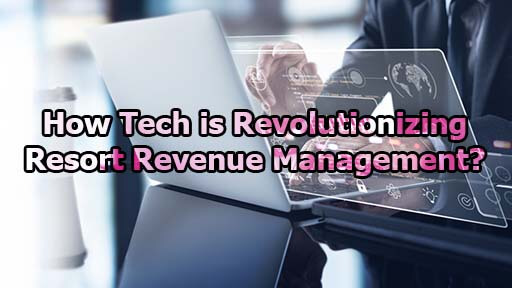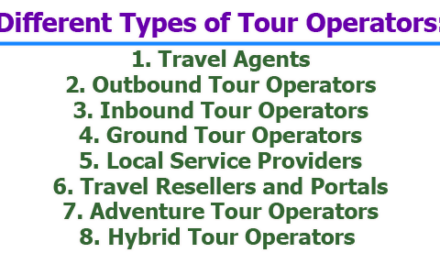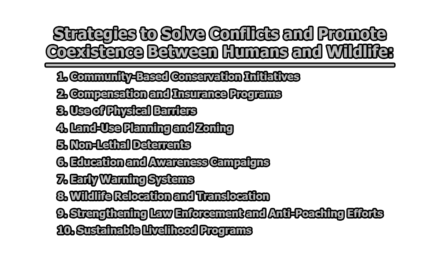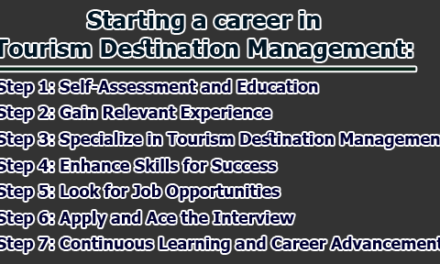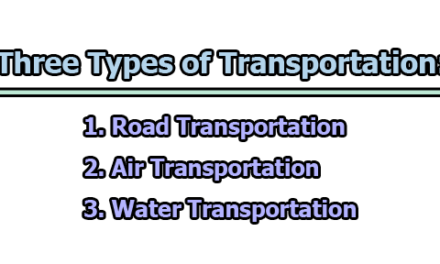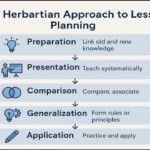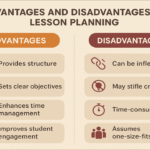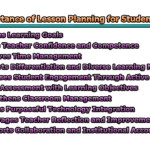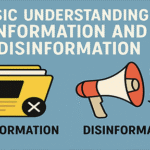How Tech is Revolutionizing Resort Revenue Management:
Now more than ever, technology is playing a crucial role in every aspect of the hospitality industry. Revenue management in resorts is no exception, with more hotels turning to tech-driven processes to enhance profitability and customer satisfaction. In this article, we will explore how tech is revolutionizing resort revenue management, the benefits and challenges associated, and what the future holds.
Definition of Revenue Management in Resorts:
Revenue Management in resorts is the strategic process of optimizing pricing, inventory, and distribution channels to maximize profitability and revenue growth. The ultimate objective is to maintain a balance between profitability and customer satisfaction while ensuring the right product is offered to the right customer at the right time and price. The primary goal of revenue management is to increase revenue by identifying profitable customers and offering them tailored products and services.
Historical Methods of Revenue Management:
Before the emergence of modern technology, resorts had to rely on manual processes that were often time-consuming and inefficient. Among the common methods used were pricing hierarchies, discounts to promote demand and other promotional offers. These methods provided limited insights and made it challenging to forecast and manage revenue effectively.
The Emergence of Technology in Revenue Management:
The introduction of technology into revenue management has transformed the industry significantly. From cloud-based software applications to web-based data analytics, there is an array of tech tools available, making it possible to manage revenue more efficiently than ever before. By integrating technology into resort revenue management processes, hotels can take advantage of cutting-edge tools, including machine learning algorithms, data analytics, and artificial intelligence, to optimize pricing, inventory, and revenue growth decisions.
The Role of Technology in the Hospitality Industry:
The hospitality industry is among the largest beneficiaries of the technological revolution, with tech-centric solutions providing a broad range of benefits. Technology fosters innovation in the hospitality industry, enhances the customer experience, and increases efficiencies that lead to improved profits and revenue growth.
Notable Types of Technology Used in Resort Revenue Management:
Some of the most notable tech tools used in resort revenue management include:
i. Revenue Management Software (RMS): Revenue Management Software (RMS) is a key technology tool used in resort revenue management. It leverages advanced algorithms and data analysis to optimize pricing decisions, maximize revenue, and enhance profitability. RMS platforms analyze various factors such as historical booking data, market trends, competitor rates, and demand patterns to recommend optimal pricing strategies. These systems enable resorts to dynamically adjust prices based on real-time market conditions, monitor performance, and forecast demand accurately. RMS platforms often integrate with other technology systems like PMS and CRS to streamline data flow and facilitate centralized decision-making.
ii. Customer Relationship Management (CRM) Systems: CRM systems play a crucial role in resort revenue management by managing and leveraging guest data to enhance customer relationships and drive revenue. These systems capture guest information, preferences, and booking history, enabling resorts to personalize marketing campaigns, offer targeted promotions, and deliver exceptional guest experiences. CRM systems facilitate effective communication with guests through various channels, including email marketing, loyalty programs, and customer feedback management. By utilizing CRM systems, resorts can identify revenue opportunities, segment their customer base, and tailor pricing and promotional strategies to specific guest segments.
iii. Centralized Reservation Systems (CRS): Centralized Reservation Systems (CRS) are technology platforms that enable resorts to manage and distribute room inventory across multiple distribution channels, including online travel agencies (OTAs), direct booking websites, and global distribution systems (GDS). CRS allows resorts to maintain consistent and real-time availability and pricing information across various channels, reducing the risk of overbooking or rate discrepancies. These systems streamline the reservation process, enable seamless online bookings, and provide a centralized view of all reservations. By efficiently managing distribution, resorts can optimize occupancy levels and revenue generation.
iv. Property Management Systems (PMS): Property Management Systems (PMS) are comprehensive software platforms used to manage various aspects of resort operations, including guest bookings, room assignments, check-ins, check-outs, housekeeping, and billing. PMS systems streamline operations, ensure smooth guest experiences, and facilitate efficient revenue management. Integration with other technology systems like RMS and CRS allows seamless data flow, enabling resorts to leverage real-time occupancy and pricing information for revenue optimization. PMS systems also generate detailed reports and analytics, providing insights into revenue performance, guest preferences, and operational efficiency.
v. Data Analytics and Business Intelligence Tools: Data analytics and business intelligence tools are essential for resort revenue management as they enable resorts to derive valuable insights from vast amounts of data. These tools use advanced algorithms and statistical models to analyze historical and real-time data, identify trends, and forecast demand accurately. Data analytics tools provide revenue managers with actionable insights for pricing decisions, inventory management, and distribution strategies. Additionally, business intelligence tools generate visual reports and dashboards, allowing revenue managers to monitor key performance indicators, track revenue metrics, and make data-driven decisions.
By leveraging these notable technology tools, resorts can optimize revenue management, improve pricing accuracy, enhance guest experiences, and stay competitive in the dynamic hospitality industry.
Advantages of Tech-Oriented Revenue Management:
Utilizing technology in resort revenue management offers several advantages, including:
- Enhanced pricing accuracy: Technology-driven revenue management allows resorts to achieve enhanced pricing accuracy. With the use of advanced algorithms and data analysis, resorts can analyze market trends, competitor rates, and demand patterns to determine optimal pricing strategies. This eliminates guesswork and allows resorts to set prices based on real-time market conditions, ensuring that rates are competitive and aligned with customer demand. By accurately pricing their products and services, resorts can maximize revenue potential and avoid leaving money on the table.
- Improved forecasting and demand management: Technology tools provide resorts with the ability to improve forecasting and demand management. Through the analysis of historical data, market trends, and booking patterns, resorts can accurately predict future demand. This enables them to optimize inventory management, adjust pricing strategies, and allocate resources effectively. By having a clear understanding of anticipated demand, resorts can avoid overbooking or underutilization of resources, ensuring maximum occupancy levels and revenue generation.
- Increased efficiency and productivity: Implementing technology in revenue management processes enhances efficiency and productivity. Manual tasks such as data analysis, reporting, and inventory management can be automated, reducing human error and freeing up valuable time for revenue managers. Technology systems allow for streamlined workflows, integration between different departments, and seamless data flow. This enables revenue managers to focus on strategic decision-making rather than spending time on administrative tasks, leading to increased productivity and overall efficiency in revenue management operations.
- Data-driven decision-making: One of the significant advantages of tech-oriented revenue management is the ability to make data-driven decisions. Technology tools collect and analyze vast amounts of data, providing valuable insights into market trends, customer preferences, and revenue performance. Revenue managers can leverage this data to make informed decisions about pricing, distribution strategies, and promotional activities. By relying on data rather than intuition, resorts can optimize revenue potential and minimize risks associated with subjective decision-making.
- Improved customer experience: Technology-driven revenue management allows resorts to deliver an improved customer experience. By leveraging customer data through CRM systems, resorts can personalize marketing campaigns, tailor pricing offers, and provide targeted promotions to specific guest segments. This enhances customer satisfaction, fosters guest loyalty, and encourages repeat bookings. Furthermore, technology tools enable seamless booking experiences, online check-ins, and personalized communication with guests, creating a smooth and convenient customer journey.
Achieving Pricing Accuracy through Tech-Driven Revenue Management:
Tech-driven revenue management enables resorts to set optimum prices based on market demand, season, customer preferences, and other factors that affect pricing. Using revenue management software (RMS) makes it possible to collect and analyze data from multiple sources, including market pricing, competition, and historical data to determine optimal prices that drive revenue growth.
Predictive Analytics and Forecasting:
Tech-driven revenue management allows resorts to better forecast customer demand accurately. Predictive analytics makes it possible to combine data from historical room demand, weather, events, and flight data to predict demand. This, in turn, allows resorts to optimize pricing, predict demand, and manage inventory effectively.
Challenges of Tech Adoption in Revenue Management:
Despite the advantages offered by technology in resort revenue management, several challenges exist. Some of these include:
- The cost of acquiring technology systems.
- Personnel training and development to ensure they can use the technology effectively.
- The need to integrate multiple technology systems to avoid redundancies that can cause problems.
- Data security and privacy concerns.
- System upgrades and maintenance requirements.
- The complexity of data analysis and interpretation.
- Customization and flexibility of technology solutions.
- Technical support and vendor relationships.
- Compatibility with existing legacy systems.
Case Studies of Successful Tech-Driven Revenue Management:
Several resort chains have successfully leveraged technology in revenue management, resulting in significant improvements in revenue and profitability. Let’s explore a couple of notable case studies:
- Marriott International: Marriott International, one of the largest hotel chains globally, has been at the forefront of embracing technology in revenue management. The company has implemented a comprehensive tech-driven revenue management system across its properties worldwide. At the core of their revenue management strategy is the utilization of revenue management software (RMS) integrated with their property management system (PMS) and centralized reservation system (CRS).
Marriott leverages data analytics and advanced algorithms to optimize pricing strategies, forecast demand accurately, and allocate inventory effectively. By analyzing historical booking data, market trends, and competitor rates in real time, Marriott can dynamically adjust pricing to match demand fluctuations and maximize revenue potential. This technology-driven approach has helped Marriott achieve improved revenue performance and enhanced profitability across its portfolio of hotels.
Additionally, Marriott employs customer relationship management (CRM) systems to capture and analyze guest data, allowing them to personalize marketing campaigns, target promotions, and enhance guest experiences. By leveraging technology to understand guest preferences and behavior, Marriott can create tailored offers and upsell opportunities, further increasing revenue generation.
- Hilton Worldwide: Hilton Worldwide is another resort chain that has successfully adopted technology-driven revenue management systems. Hilton utilizes an advanced revenue management system that integrates with their property management system (PMS) and centralized reservation system (CRS). By leveraging real-time data and sophisticated analytics, Hilton can optimize pricing decisions, forecast demand accurately, and efficiently manage inventory across its global properties.
Hilton’s revenue management strategy includes the use of advanced algorithms and machine learning models to analyze historical data, market trends, and guest behavior. This enables Hilton to make data-driven pricing decisions, optimize room rates based on market demand, and effectively allocate inventory to maximize revenue potential. The integration between revenue management, PMS, and CRS systems ensures seamless data flow and centralized decision-making, allowing Hilton to achieve improved revenue performance and yield management.
Furthermore, Hilton leverages technology to enhance the guest experience. Through customer relationship management (CRM) systems, Hilton captures guest preferences and booking history, enabling personalized communication, tailored offers, and targeted promotions. This focus on delivering personalized experiences not only improves guest satisfaction but also drives revenue growth by fostering guest loyalty and repeat bookings.
- Hyatt Hotels Corporation: Hyatt Hotels Corporation has also embraced technology in their revenue management strategies. Hyatt leverages a sophisticated revenue management system that incorporates predictive analytics and machine learning algorithms. By analyzing historical data, market trends, and customer behavior, Hyatt can accurately forecast demand, optimize pricing strategies, and allocate inventory effectively.
Hyatt’s tech-driven revenue management system enables them to dynamically adjust pricing based on real-time market conditions, competitor rates, and demand fluctuations. The system utilizes advanced algorithms to identify booking patterns and predict future demand, allowing Hyatt to optimize room rates and occupancy levels. This data-driven approach has resulted in increased revenue and improved yield management for Hyatt properties.
Additionally, Hyatt leverages technology to enhance operational efficiency and streamline revenue management processes. Integration between their revenue management system and property management system (PMS) allows for seamless data flow and centralized decision-making. This enables Hyatt to make informed pricing and inventory allocation decisions, leading to improved revenue performance across their hotel portfolio.
- AccorHotels: AccorHotels, a leading international hotel group, has successfully implemented tech-driven revenue management systems across their properties. AccorHotels utilizes an integrated suite of technology tools, including revenue management software (RMS), customer relationship management (CRM) systems, and data analytics platforms.
By leveraging these technologies, AccorHotels can make data-driven pricing decisions, forecast demand accurately, and optimize revenue generation. The RMS enables AccorHotels to analyze market trends, competitor rates, and historical data to set optimal pricing strategies. The system allows them to dynamically adjust rates based on demand fluctuations and competitor positioning. This ensures that AccorHotels can maximize revenue potential and maintain a competitive edge in the market.
AccorHotels also utilizes customer relationship management (CRM) systems to capture and analyze guest data. By understanding guest preferences, booking patterns, and behavior, AccorHotels can personalize marketing campaigns and tailor offers to specific customer segments. This personalized approach enhances the guest experience, increases guest satisfaction, and fosters loyalty, leading to higher revenue and repeat bookings.
In addition to revenue management and CRM systems, AccorHotels leverages data analytics platforms to gain insights into guest behavior, market trends, and performance metrics. These platforms enable them to identify revenue opportunities, optimize sales channels, and streamline operations. By analyzing data and generating actionable insights, AccorHotels can make informed decisions and drive revenue growth across their properties.
Furthermore, AccorHotels has implemented centralized reservation systems (CRS) that integrate with their revenue management systems. This integration ensures seamless connectivity between the reservation system and revenue management, enabling real-time rate and availability updates. This allows AccorHotels to optimize inventory allocation, maximize room revenue, and minimize the risk of overbooking or underutilization of resources.
- InterContinental Hotels Group (IHG): InterContinental Hotels Group is another resort chain that has successfully integrated technology into revenue management processes. IHG utilizes a centralized revenue management system that incorporates data analytics and forecasting techniques. By analyzing historical data, market trends, and competitor rates, IHG can optimize pricing strategies and maximize revenue potential. The use of technology has helped IHG streamline revenue management operations, improve forecasting accuracy, and achieve higher revenue performance.
Analysis of Case Studies and Revenue Increase Recorded:
A study of these resort chains shows that utilizing tech-driven revenue management resulting in an average revenue increase ranging from 1% to 8%. This increase is attributable to increased pricing accuracy, improved forecasting, and inventory management that maximize revenue.
The Future of Tech-Driven Revenue Management:
Advancements in technology mean that tech-driven revenue management in resorts will continue to evolve in the future. Some potential impacts include:
- Artificial Intelligence (AI) and Machine Learning (ML): AI and ML algorithms have the potential to revolutionize revenue management by analyzing vast amounts of data, identifying patterns, and making accurate predictions. These technologies can enable resorts to automate pricing decisions, optimize inventory allocation, and dynamically adjust rates in real time. AI-powered chatbots and virtual assistants can also enhance guest interactions, provide personalized recommendations, and streamline the booking process.
- Predictive Analytics and Demand Forecasting: Predictive analytics will play a crucial role in revenue management, enabling resorts to forecast demand with greater accuracy. Advanced analytics models can consider various factors such as historical data, market trends, weather conditions, and events to generate more precise demand forecasts. This will empower resorts to optimize pricing strategies, manage inventory effectively, and capture revenue opportunities.
- Integration of Systems and Data: Seamless integration between revenue management systems, property management systems (PMS), customer relationship management (CRM) systems, and other operational platforms will become increasingly important. This integration will allow for real-time data flow, centralized decision-making, and a holistic view of guest information. By breaking down data silos and leveraging interconnected systems, resorts can enhance revenue optimization and provide personalized guest experiences.
- Personalization and Guest Experience Enhancement: Technology will enable resorts to offer highly personalized experiences tailored to individual guest preferences. Through data analysis and guest profiling, resorts can understand guest behaviors, preferences, and past interactions to deliver customized offers, promotions, and recommendations. Personalized pricing, loyalty programs, and targeted marketing campaigns will enhance guest satisfaction and drive revenue growth.
- Dynamic Pricing Strategies: Technology will enable resorts to implement dynamic pricing strategies that respond to real-time market conditions, competitor rates, and demand fluctuations. By leveraging data analytics and revenue management systems, resorts can optimize pricing based on factors such as occupancy levels, booking patterns, guest segments, and market demand. Dynamic pricing strategies will help maximize revenue potential and maintain a competitive edge.
- Mobile and Digital Innovations: The increasing use of mobile devices and digital platforms will shape the future of revenue management in resorts. Mobile apps, online booking platforms, and digital concierge services will streamline the guest experience, enable direct communication with guests, and provide opportunities for targeted marketing and upselling. Mobile check-in, keyless entry systems, and personalized mobile notifications will enhance operational efficiency and guest satisfaction.
- Blockchain Technology: Blockchain technology has the potential to enhance transparency, security, and efficiency in revenue management. It can provide a decentralized and tamper-proof system for managing transactions, contracts, and reservations. Smart contracts executed on blockchain platforms can automate revenue-sharing agreements, simplify payment processes, and ensure data integrity, leading to more efficient revenue management practices.
- Voice-Activated Technology: The rise of voice-activated technology, such as virtual assistants and voice-controlled devices, will revolutionize guest interactions and revenue management processes. Voice-activated assistants can provide instant information, answer guest queries, and assist with bookings and reservations. Integration of voice-activated technology with revenue management systems will enable resorts to access real-time data and make pricing decisions through voice commands.
- Internet of Things (IoT): The Internet of Things (IoT) will enable interconnected devices and sensors to collect data and provide valuable insights for revenue management. IoT-enabled devices in hotel rooms can gather data on guest preferences, occupancy patterns, and energy consumption, allowing resorts to optimize room rates, allocate resources efficiently, and minimize operational costs.
- Data Security and Privacy: As technology becomes more prevalent in revenue management, ensuring data security and protecting guest privacy will be of paramount importance. Resorts must invest in robust cybersecurity measures, comply with data protection regulations, and implement secure data storage and transmission protocols. Building trust with guests regarding the handling of their personal information will be critical for successful tech-driven revenue management.
- Augmented Reality (AR) and Virtual Reality (VR): AR and VR technologies have the potential to enhance the guest experience and drive revenue growth in resorts. Through immersive virtual tours, guests can explore resort facilities, rooms, and amenities, influencing their booking decisions. AR can provide interactive overlays with real-time information, such as pricing, availability, and promotions, enhancing the on-site guest experience and driving ancillary revenue opportunities.
- Data-Driven Marketing and Personalized Offers: Resorts will increasingly rely on data-driven marketing strategies to target specific guest segments and deliver personalized offers. By analyzing guest preferences, behavior, and purchase history, resorts can create tailored marketing campaigns and promotions. This targeted approach increases the likelihood of conversion, boosts guest satisfaction, and maximizes revenue potential.
- Revenue Management Automation: Automation will play a crucial role in streamlining revenue management processes. AI-powered algorithms and robotic process automation (RPA) can automate routine tasks, such as data analysis, report generation, and pricing updates. By automating these processes, resorts can free up staff time, reduce human error, and focus on strategic revenue management decisions.
- Cloud Computing and Big Data Analytics: Cloud computing and big data analytics will continue to revolutionize revenue management in resorts. Cloud-based platforms offer scalability, flexibility, and accessibility to data, allowing resorts to store and process large volumes of data efficiently. Big data analytics tools can extract valuable insights from this data, enabling resorts to make informed revenue management decisions, identify trends, and optimize pricing strategies.
- Machine-to-Machine Communication: Machine-to-machine communication, facilitated by the Internet of Things (IoT), will enhance revenue management processes. Connected devices, such as smart meters, sensors, and automated systems, can collect and exchange data in real time. This real-time data flow enables dynamic pricing adjustments, proactive maintenance, and efficient resource allocation, leading to improved revenue performance.
Areas for Improvement in Tech Utilization for Revenue Management:
Despite technological advancements in revenue management, there remain areas for improvement. These include:
- Cooperation between departments to integrate disparate systems effectively.
- A better understanding of how technology impacts the customer experience, putting customer needs first.
- Enhanced training and education for staff to maximize the potential of technology tools.
- Integration of artificial intelligence (AI) and machine learning (ML) for advanced applications in revenue management.
- Real-time data accessibility for timely decision-making and response to market changes.
- Continuous evaluation and optimization of revenue management systems and processes.
- Improved user interface and user experience (UI/UX) design for better usability and efficiency.
- Seamless integration of revenue management technology with other operational systems.
- Enhanced data security and privacy measures to protect sensitive guest information.
- Collaboration with technology providers and industry partners for innovation and best practices.
Ethical Issues Surrounding the Use of Technology in Revenue Management:
As with any technology, its application raises ethical concerns. Some ethical issues include:
- Balancing profitability and customer satisfaction.
- Transparency in the use of customer data in the decision-making process.
- Ensuring fair and non-discriminatory pricing practices.
- Protecting customer privacy and data security.
- Avoiding manipulation and unethical practices in revenue optimization.
- Ensuring accurate and honest representation of pricing and availability.
- Addressing potential biases in algorithmic decision-making.
- Safeguarding against unethical use of guest feedback and reviews.
- Maintaining ethical standards in the use of AI and machine learning algorithms.
- Mitigating the risk of unintended consequences and negative impacts on customers.
In conclusion, tech-driven revenue management is transforming the resort industry and improving revenue growth. While challenges such as cost and personnel training persist, the advantages offered by technology make it a necessary adaptation for resorts that wish to remain competitive in today’s digital age.
FAQs:
What is resort revenue management?
Resort revenue management refers to the strategic process of maximizing revenue and profitability in the resort industry through effective pricing, inventory management, and distribution strategies. It involves analyzing market demand, competition, and customer behavior to make data-driven decisions that optimize revenue and enhance guest satisfaction.
What types of technology are used in resort revenue management?
Various types of technology are used in resort revenue management to enhance efficiency and decision-making processes. Some common technologies include revenue management software (RMS), customer relationship management (CRM) systems, centralized reservation systems (CRS), property management systems (PMS), and data analytics tools. These technologies automate processes, enable accurate demand forecasting, optimize pricing, and facilitate seamless management of reservations, availability, and guest information.
How does technology improve revenue management efficiency?
Technology improves revenue management efficiency by automating manual tasks, providing accurate demand forecasting, enabling dynamic pricing adjustments, streamlining distribution management, and enhancing personalization and guest experience. Automation reduces administrative workload, allowing revenue managers to focus on strategic decision-making. Accurate demand forecasting helps optimize pricing and inventory decisions. Dynamic pricing ensures rates are adjusted in real-time based on demand fluctuations. Efficient distribution management maximizes revenue potential across multiple channels. Personalization and guest experience enhancements drive guest satisfaction and repeat business.
What challenges do resorts face in the adoption of tech-driven revenue management?
Resorts face several challenges in the adoption of tech-driven revenue management. These challenges include the cost of technology implementation, including software, hardware, and infrastructure upgrades. Staff training and development are crucial to ensure the effective utilization of technology. Integration of different systems for revenue management, property management, and customer relationship management can be complex. Resorts must address data quality and integration issues to ensure accurate and reliable information. Additionally, ensuring data security and privacy, adapting to evolving technology trends, and managing potential resistance to change within the organization are among the challenges faced in adopting tech-driven revenue management.

Assistant Teacher at Zinzira Pir Mohammad Pilot School and College

